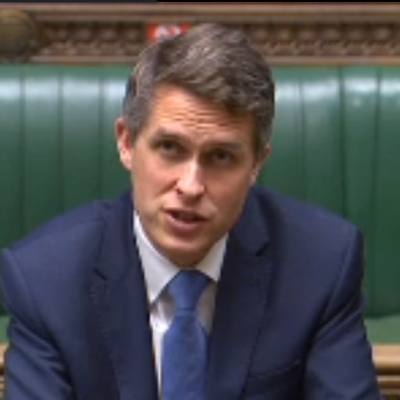Schools will be able to order the remaining 300,000 promised laptops from next week – but the education secretary will only commit to delivering “the majority” by the time they are due to reopen.
Data released by the Department for Education (DfE) on Tuesday showed the number of laptops dispatched to schools had fallen for a third week running. A total of 51,676 laptops were sent out last week, down from 74,489 the week before .
“Schools with the highest proportion of disadvantaged pupils will be prioritised to receive devices first, with the majority of device deliveries to be completed by the end of the first week of March”
The government had originally pledged to supply one million devices but committed to an additional 300,000 laptops and tablets in January following the partial closure of schools.
Writing for Schools Week, education secretary Gavin Williamson said that schools with the most disadvantaged pupils would receive the additional devices first. He added that the “majority of device deliveries” would be completed “by the end of the first week of March”.
As of last week, 927,689 laptops had been dispatched. Nearly 40 per cent of those (365,268) have gone out since the start of the year.
But the rate of delivery has now fallen to around a third of what it was at the beginning of last month. Between January 4 and 11, the DfE dispatched around 140,000 laptops to help schools meet the new requirements for lockdown learning.
If rollout continues at the same pace as last week (51,000), then all schools will not receive their promised devices until March 21.
Ed sec points to demonstrators scheme
Williamson pledged to work with “the sector to make sure children can access the education they deserve, whether that’s remotely or in the classroom”.

Meanwhile the £6 million edtech demonstrator scheme will be extended into next year. Williamson said this was so “more schools and colleges can build staff capability” to ensure the “adoption of technology is bound by strong pedagogical rationale or business need”.
The programme was announced as part of the DfE’s edtech strategy in 2019 to help teachers use technology to reduce workload, support professional development and improve pupils’ results.
However, following the onset of the coronavirus pandemic, the DfE shifted its focus to help ensure pupils could access good quality remote education.
The network now includes 48 schools and colleges. Williamson said that more than 11,000 schools have benefited from the programme so far.
In December, a number of demonstrator schools told Schools Week of their desire to continue the programme and secure the programme’s “legacy” beyond the pandemic.
Williamson said the extension would “help address our long-term ambition of building the digital capabilities of everyone working in our education communities – whether that’s by driving up standards, helping children catch up on any learning lost to covid, reduce teaching workload or saving schools money”.
He added: “We need technology to deliver in schools and not become an expensive white elephant. We want pupils to be able to access high-quality teaching wherever they are but we also want to help teachers to enjoy its benefits.
“It can strengthen professional bonds and give teachers the chance to share resources and learn from each other.”








I think Schools should open safely..without any risk of any coronavirus variants.. kids r 2 valuable 2 risk!!
I hope whatever Government is doing.. The children r centre of Attention!!